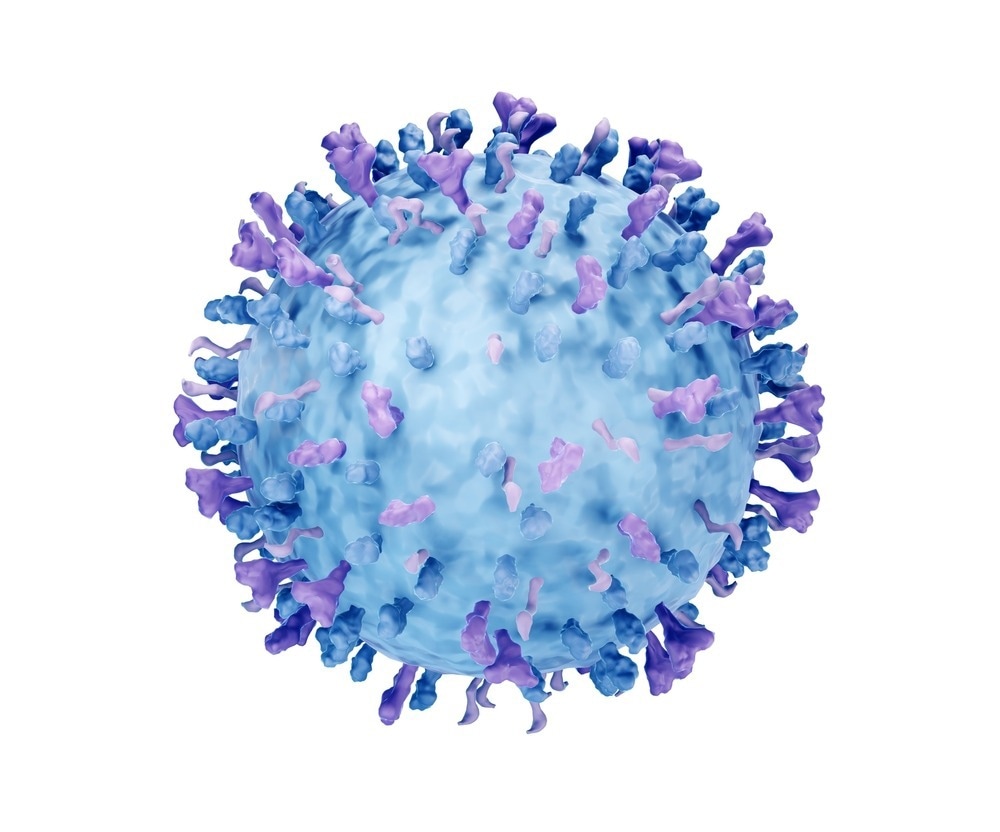Researchers identify a new RSV variant associated with prolonged infection
A new The Journal of Infectious Diseases study examines genetic risk factors of pathogens or hosts for RSV infection and whether certain virus variants are associated with prolonged infection. E-Book Immunology Compilation of the top interviews, articles and news from the last year. Download a free copy Learning: Viral genetic determinants of prolonged respiratory syncytial virus infection in infants in a healthy birth cohort. Image credit: ART_ur / Shutterstock.com Transmission of RSV Human orthopneumovirus, more commonly known as respiratory syncytial virus (RSV), can cause significant mortality and morbidity worldwide. All children between the ages of two and three become infected with RSV at least once. RSV primarily infects the...

Researchers identify a new RSV variant associated with prolonged infection
A new one The Journal of Infectious Diseases The study examines genetic risk factors of pathogens or hosts for RSV infection and whether certain virus variants are associated with prolonged infection.
Immunology e-book
Compilation of the top interviews, articles and news from the last year. Download a free copy
Learn: Viral genetic determinants of prolonged respiratory syncytial virus infection in infants in a healthy birth cohort.Photo credit: ART_ur / Shutterstock.com
The transmission of RSV
Human orthopneumovirus, more commonly known as respiratory syncytial virus (RSV), can cause significant mortality and morbidity worldwide.
All children between the ages of two and three become infected with RSV at least once. RSV primarily infects the epithelium of the lower and upper respiratory tract; however, it has also been found in non-respiratory sources. Although RSV typically causes an acute respiratory infection, it can also cause persistent or long-term illness in some people.
Prolonged shedding of RSV in infants after the first infection has been observed to increase the average duration of viral shedding. However, it is not known whether certain viral factors lead to prolonged infection in infants.
It is important to understand the characteristics of persistent infection as it can increase transmission rates and cause developmental changes to the airway epithelium of young patients. The reservoir for RSV is also not understood, with some RSV strains believed to remain circulating in the community at low levels, while others may remain seasonal.
About studying
The current study included healthy, term infants who had prolonged RSV infection. A viral genome-wide association study (GWAS) was conducted using RSV whole-genome sequencing to understand the relationship between prolonged RSV infection in infants and viral genotypes.
Human GWAS was performed to analyze the effect of first-year RSV infection risk on genotype. Additionally, the local immunological response to RSV was assessed, along with analysis of all viral sequence data.
Finally, a summary of all functional data for the identified variant was created.
Study results
A total of 19 infants met the extended infection criteria, defined as acute respiratory infection with two or more RSV polymerase chain reaction (PCR)-positive nasal samples with more than 15 days between the two testing dates.
The mean RSV-Ct value of the first infection was 25.9, the second was 31.6. The median number of days between the two infections was 29 days.
RSV infection had little to no effect on the infants' genotypes. Furthermore, prolonged infection was caused by viruses from different phylogenetic clades compared to a single specific clade. Similar RSV sequences were observed during initial and subsequent viral detection, suggesting that these were prolonged infections.
A genetic association between prolonged infection and the lead variant was observed, with no other variants found to correlate with the lead variant. The p.E123K/D and p.P218T/S/L variant genotypes were mainly associated with prolonged infection; However, information on the effects of the two variants on regional or local RSV G protein structure was insufficient. Furthermore, the effect on glycosylation was undetermined.
Conclusions
The current study identified RSV variants that resulted in prolonged infection in otherwise healthy infants; however, no information was obtained regarding the host's genetic susceptibility to RSV infection.
Understanding the viral and host mechanisms that lead to prolonged infection may help determine strategies that can control both the short- and long-term effects of RSV infection. In addition, identifying RSV variants that cause prolonged infection may also help improve vaccine design.
Further research is needed to determine the reservoir for RSV and its capacity for prolonged infection in immunocompetent hosts.
restrictions
The current study was not designed to examine the duration of infection and required additional sampling. In addition to a small cohort size, the researchers were only able to analyze the host's genetic risk of infection and not the prolonged infection. Finally, the modulatory effects of maternal antibody levels on the infants were not measured.
Reference:
- Lawless, D., McKennan, CG, Das, SR, et al. (2022). Virale genetische Determinanten einer verlängerten Respiratory-Syncytial-Virus-Infektion bei Säuglingen in einer gesunden Geburtskohorte. Das Journal der Infektionskrankheiten. doi:10.1093/infdis/jiac442.
.

 Suche
Suche
 Mein Konto
Mein Konto

